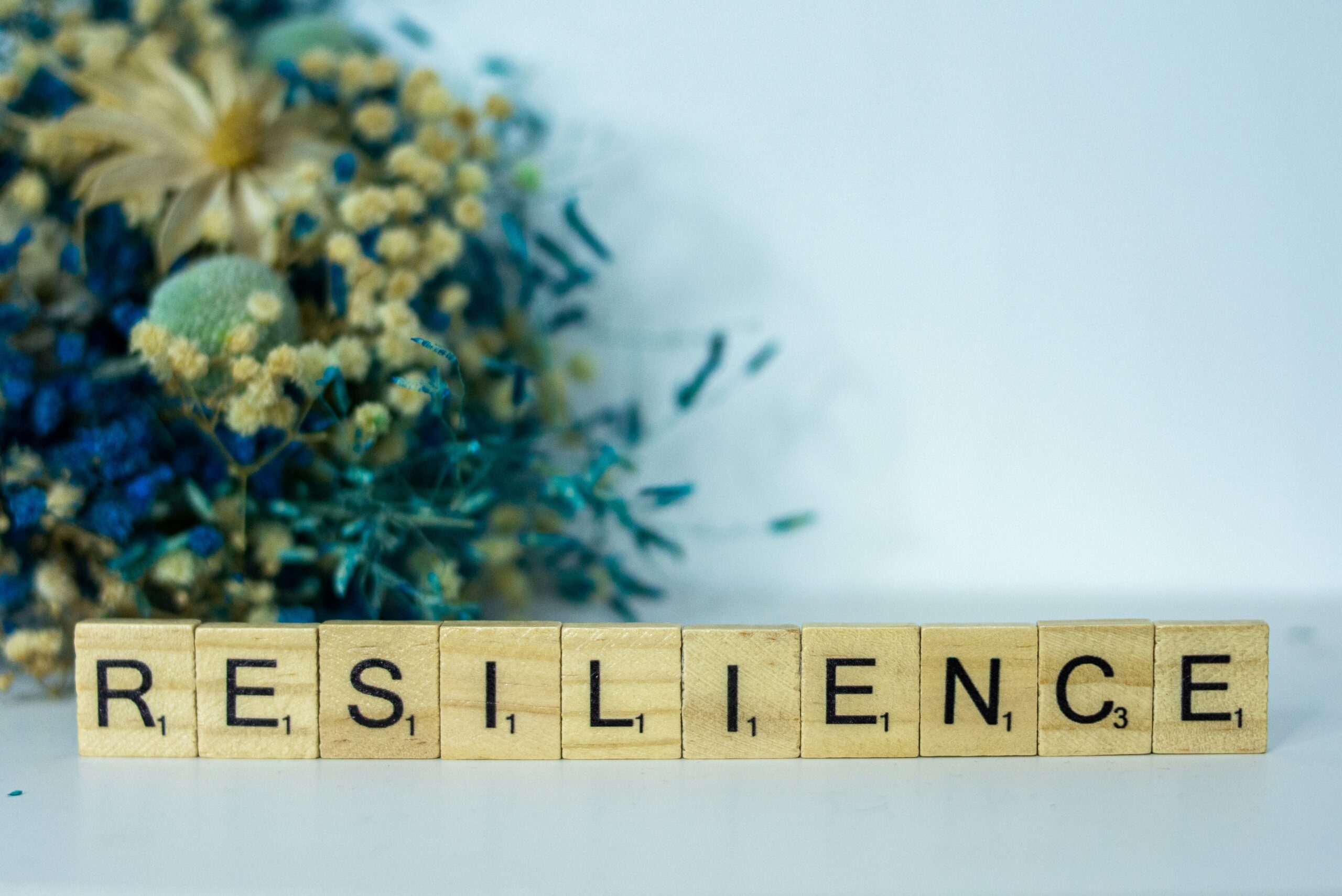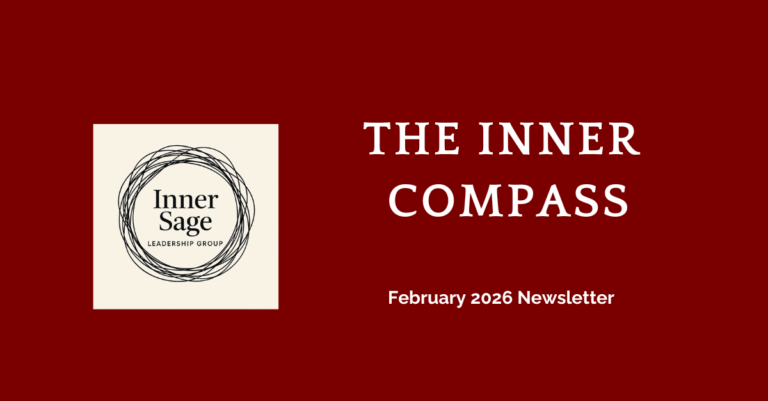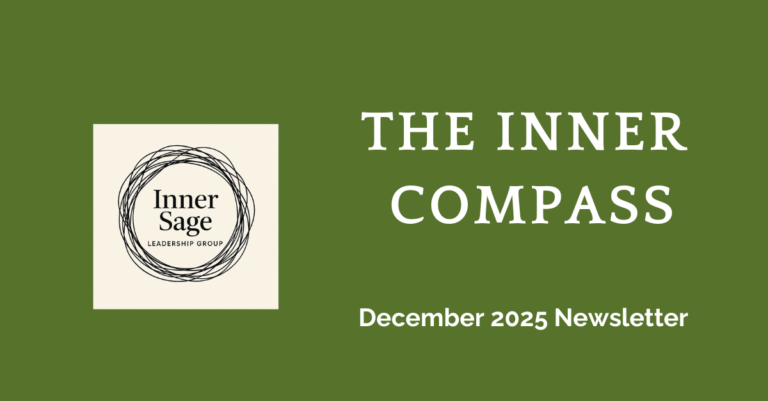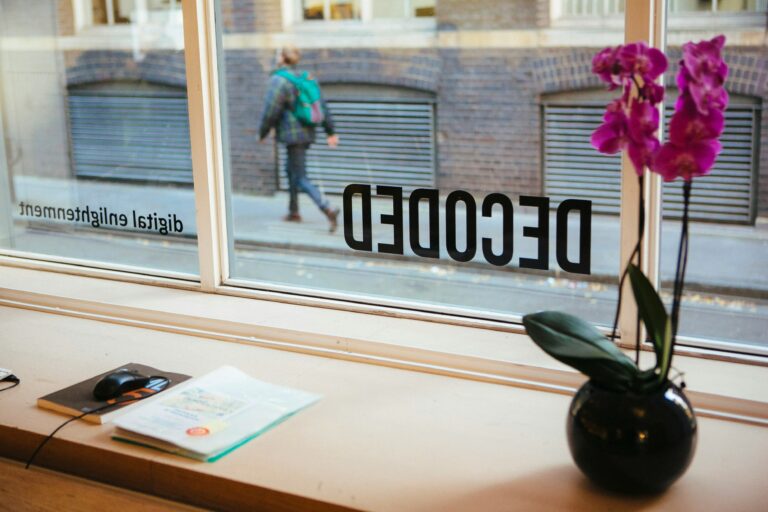Resilience Isn’t What You Think
By Dr. Joan Flora, Inner Sage Leadership Group
A colleague told me not long ago, “I’m just trying to push through until June.”
I paused when she said it—because I’ve heard those words from others and myself. They’re spoken with a mix of resignation and determination, like a runner near the end of a long race, focused only on the finish line.
Educators are trained in endurance. We wear our grit like a badge of honor. We shoulder burdens without complaint. We normalize exhaustion. We conflate urgency with value and mistake depletion for devotion.
Now, I ask a different question: Is this what resilience looks like?
Is it a clenched jaw? A color-coded calendar packed with back-to-back meetings? A life lived in service of everyone but yourself?
I challenge that notion.
The Tragic Strategy of “Pushing Through”
“Pushing through” is a tragic strategy—trying to meet a profound human need but doing so at a painful cost.
When we push through, we may be trying to serve critical internal needs—like being dependable or maintaining a sense of safety and control in uncertain systems. These needs matter. However, the way we meet them—by ignoring the body’s signals, numbing ourselves to our own limits, and bypassing reflection—disconnects us from the things we long for: rest, presence, integrity, and choice.
Pushing through isn’t resilience. It’s a quiet form of escape. A numbing. A refusal to listen to what our emotions and needs are trying to teach us.
A New Vision of Resilience
What if resilience isn’t about toughness at all? What if true resilience is about returning—again and again—to what matters most?
The leaders I admire aren’t sprinting from one crisis to the next. They are grounded. They’ve built practices that allow them to move more clearly than compulsively. They pause. They reflect. They let their “no” be an act of courage and their “yes” a sacred thing.
These leaders have discovered that resilience doesn’t mean giving more. It means giving differently. It means meeting your needs with compassion so you can meet others with wisdom.
They’ve stopped pushing through and started tuning in.
What Does It Look Like to Lead with Rhythm, Not Resistance?
Resilience in its truest form builds a rhythm that holds both effort and ease. One that honors our human and the mission.
This can include:
- Taking five quiet minutes before a meeting to return to your breath
- Saying “no” to a last-minute request, even when you fear disappointing someone
- Blocking recovery time on your calendar—not just work time
- Asking yourself regularly: “Is this aligned with my deepest purpose or my loudest pressure?”
These micro-moments of reflection build a leadership rhythm grounded in intention, not reactivity.
From Burnout to Wise Action
We cannot give our best to students, staff, or communities if we are burned out, reactive, and disconnected from ourselves.
At Inner Sage Leadership Group, we believe emotional self-awareness is the root of wise action. We help leaders listen to their emotions, identify the needs beneath them, and move from reactivity to presence.
Resilience is about becoming more responsive, more discerning, and more humane with yourself and others.
So, I’ll ask you what I ask my clients:
“What are you needing when you choose to push through?”
“Is there an effectively kind way to meet that need—one that doesn’t cost your well-being?”
The Inner Work of Leadership
Our schools need strong leaders. But more than that, we need whole leaders. People who honor both their purpose and their limits. If you’re longing for that kind of leadership—if you’re ready to trade white-knuckling for rhythm—I invite you to begin with this one question:
“What is mine to carry, and what is mine to release?”
Your well-being knows the difference.
Want to Get Even Better at This?
Understanding needs-based boundaries is one thing. Applying this in real conversations? That’s where real change happens.
If you want to:
- Learn how to express boundaries that reflect your needs
- Consider the other person in your boundary dance
- Break the cycle of emotional reactivity
- Develop emotional intelligence (EQ) that transforms relationships
Schedule a complimentary session. Book now.







